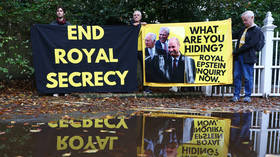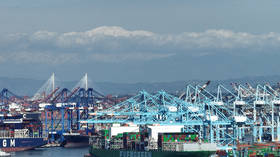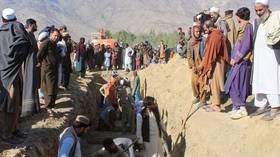'Gitmo created more terrorists than we could've ever imagined'
US Army Veteran Brandon Neeley - a former guard at Guantanamo Bay - speaks out against the abuses he witnessed at the prison, and lack of ongoing media attention given to them. Neeley enlisted for five years in 2000, heading to Guantanamo in 2002.
Neeley tells RT about violent incidents involving detainees, and
expresses regret at his former role as a guard, mourning the lack
of consistent media attention on the prison’s mistreated prisoners.
He believes the hunger strike is now the detainees’ only possible
option in garnering international attention given their plight -
authorities have perpetually ignored their basic human
rights.
RT:You were there over 10 years ago - how were detainees
treated during your time at the facility?
Brandon Neeley: They were treated horrible. We were told before we actually got to Guantanamo, that the Geneva Convention would not be held in effect. The detainees, when they first arrived, they weren’t even allowed to walk around in their cells -or cages, as I call them. They weren’t allowed to pray, they weren’t allowed to do nothing. When the International Red Cross came, some of the constraints loosened up and they were able to talk and stuff. But I mean they were treated horrible. They were abused by us guards and when it came to Internal Reaction Force team and…they were just mistreated all around, especially in the beginning.
RT:Did you take part in that abuse – did you take part yourself?
BN: Yeah, I’ve always been very open about this. I was actually involved in the very first incident that ever took place in Guantanamo. A detainee - an older detainee has tried to jerk away from us and I slammed him facing to the ground and held his face to the concrete until the Internal Reaction Force team pulled us off. I’ve always been very open. I was involved in an incident and witnessed more after that. In a nutshell, if I could do it again, I wouldn’t take part in it, I would’ve spoken about it sooner than I did.
RT:Are detainees treated any differently now?
BN: From the outside looking in at it, it has changed. As far as PR, the way the government tries to spin it, because the facility is a lot better. But the guards that have been there over the last few years, the treatment inside as far as the Internal Reaction Force team and the way the Koran is treated and stuff like that - not much has changed. Maybe the outside has changed but the inside has not changed too much.
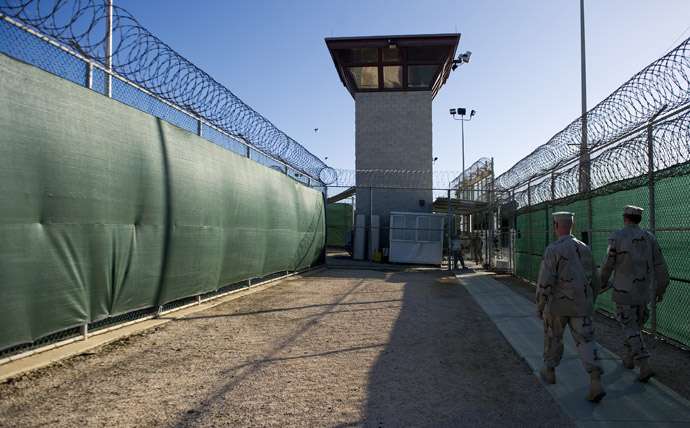
RT:Does it surprise you that these detainees have gone on hunger strike and are now threatening their own lives?
BN: No, not at all. It has been eleven years. A lot of these guys, a lot of people forget that over half these people have been cleared for release, not only by the Obama administration but also by the Bush administration.
The sad part in all of this is, it’s really not covered in the mainstream media unless these detainees do go on hunger strike, so this is really their only way to protest.
Just think about it. They’ve just found out that the Obama administration has just got rid of the only office that was attempting to close Guantanamo and they’ve just publically announced that there is nothing in the works to send or repatriate those people cleared for release. So this is their form of protest and this is the only way they are getting any kind of media attention into Guantanamo, which is the sad part.
RT:If they are released, would they not just be moved on to another detention center? Would it make any difference to their future plight?
BN: A lot of them were cleared for release. They wanted
to be sent to other countries like Somalia- like former detainees
who were cleared - they were sent either back home or repatriated
and sent to some other country to live their life.
And the fact is that a lot of these people are sitting in limbo,
they are cleared for release. And they’re going to be indefinitely
held for who knows how long? They don’t know when they’ll see their
families again or where they’re going to go. I think
the fact that they don’t know what is going to happen is what makes
them protest. And this is the only form of protest they have – to
go on hunger strike.
RT:Looking back at your time there, do you feel any regret, remorse, guilt? Is this why you’re speaking out now about their conditions and what happened there?
BN: I feel a lot of regret and remorse for what I took part in. The fact is, I’ve never used the old say ‘I was just following orders.’ I’m guilty of what I’m guilty of. And the fact is that when whoever opened the camp decided to open Guantanamo , they knew from the go that it was wrong, it was illegal and it was a violation of human rights, and the fact is that it needs to be closed.
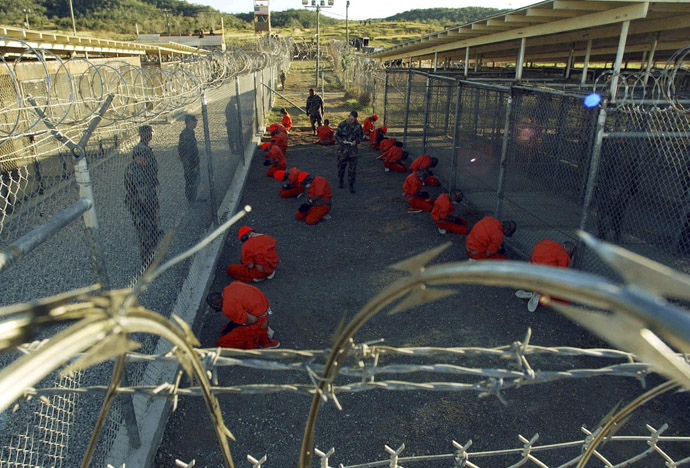
I’ve tried to take something very negative in my life and tried to turn it into something positive and do some good. And hopefully by coming forward – by a lot of us that have come forward, you know- we put a lot of risk by coming forward - that it does make a difference.
And hopefully eventually Guantanamo will be closed and a lot of these detainees can go home and the guilty ones can be tried and sentenced…
RT:Do you think you’re helping this, because this case has not been covered a lot in mainstream media (Something you touched on a little bit earlier)? Do you think people are listening?
BN: I think it depends. I really believe that if we had a Republican president it would be a lot more in the mainstream media. The issue of Guantanamo goes through flurries where it would be real hot around the anniversary and everyone wants to talk about it or if somebody dies they want to talk about it. You know, at the beginning there was a lot of media attention once some of it did become public but it has kind of died down. I think a lot of it is that government is very good at spinning it, making it look like a straight place.
RT:What is the alternative though – if you have terror suspects or people who are charged with atrocities, is there an alternative to something like Guantanamo? Isn’t the world a safer place for it?
BN: No. I really believe Guantanamo has created more true terrorists around the world then we’ve gotten rid of. The fact is that we’ve held a lot of innocent people there and the fact is there are truly guilty people there that need to be dealt with. But we have a federal court system that has proven time and time over that we can try true terrorists and sentence them to whether it’s you know by death or life imprisonment in super max prison.
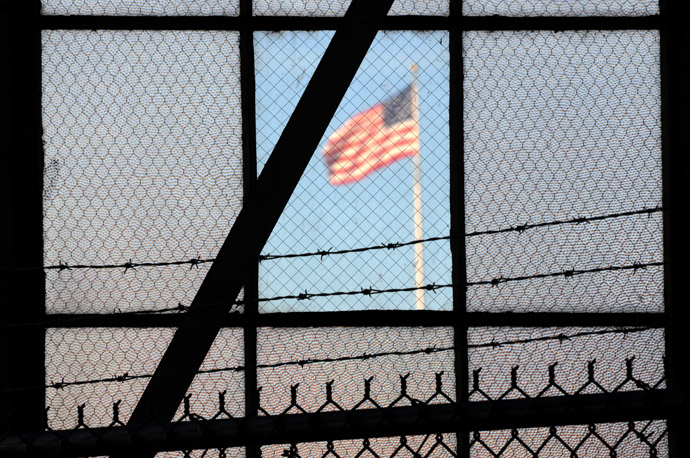
The fact is the military commission is a kangaroo court – a lot of the stuff they went over, the federal court system has already rules intact for. They’ve spent a whole week under…well, once Khalid Sheikh Mohammed, he was allowed to wear camouflage. You know federal court has rules of what you’re allowed to wear or not wear in a courts system. It is a mockery.
The fact is they’ll never bring him into a federal court system because a lot of the information they have gotten has been gotten under the use of torture, so it is inadmissible in federal courts system.
But we’ve dropped the ball. We have a system here. We have an opportunity to show the world that our system and our way of life actually works. But we dropped the ball we’ve created more terrorist and enemies around the world than we could have ever imagined.
The statements, views and opinions expressed in this column are solely those of the author and do not necessarily represent those of RT.


